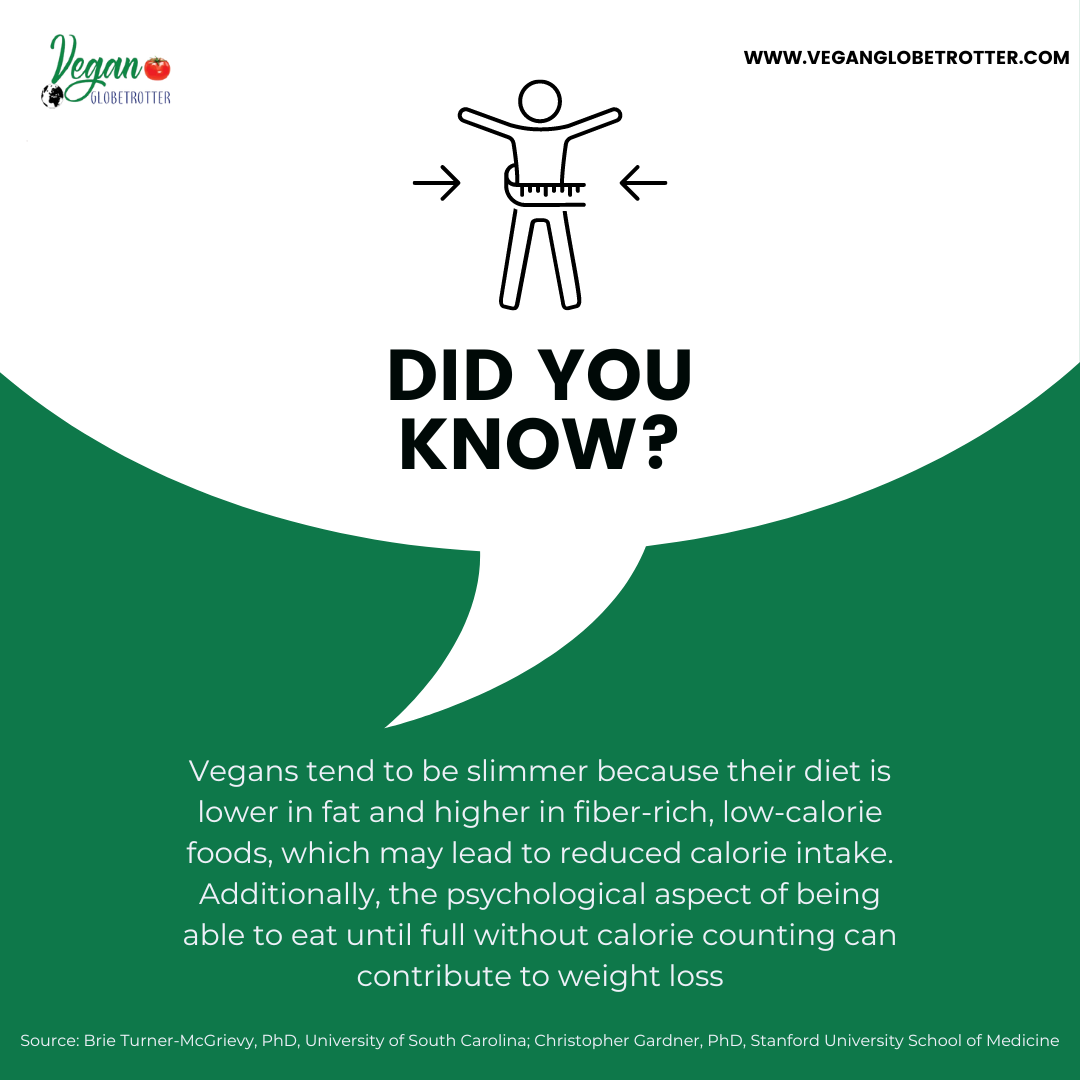Vegan Globetrotter is supported by our audience. When you purchase through one of our links, we may earn a small affiliate commission. As an Amazon Associate I earn from qualifying purchases. Your cost is not affected.
==================
I was chatting with the woman at the food counter in our local bowling alley a few years ago. I explained that one of our friends needed his order without butter as he was vegan. This particular person was stout, not fat, but not skinny. He was genuinely big-boned and was quite muscled. In her mind, “Are all vegans skinny?” was just assumed.
She was shocked. I remember her words quite clearly. “THAT is a vegan?!” I was glad the person was not within listening range.
After a short explanation of how not all vegans are skinny and malnourished, I took our order to the table. I never told the person about the conversation, but I’ve carried it in my mind since. So many believe that you need to be skinny and even anemic-looking if you are a vegan.
The truth is, not all vegans are skinny. Many carry a healthy amount of weight. Many bodybuilders and other athletes are vegan.
Are All Vegans Skinny? Debunking the Common Myth
The typical image of a vegan as invariably thin doesn’t align with reality because veganism, like any other diet, doesn’t automatically lead to weight loss or a particular body shape.
Vegan diets vary widely, from nutrient-dense whole foods to highly processed options, each affecting body composition differently. While some vegans may be skinny due to a lower average intake of calories or high amounts of plant-based foods, which are often less calorie-dense, others maintain or gain weight on a vegan diet just as on any other diet.

It’s also important to note that many factors influence body weight, including genetics, lifestyle, and exercise habits. Vegan diets can be designed to support different body weights and compositions, all while maintaining health and ensuring nutritional needs are met.
Research has shown diverse health outcomes for vegans, ranging from positive cardiovascular health to potential deficiencies that require careful dietary planning. Subsequently, the notion of a ‘one size fits all’ when it comes to body weight and veganism is misguided.
Key Takeaways
- Vegan diets can result in various body shapes and weights like any other diet.
- Factors such as genetics, lifestyle, and the type of vegan diet influence individual body weight.
- A balanced vegan diet can support health, though careful planning is essential to avoid deficiencies.
Understanding Veganism
Video Credit: @florianwueest
In exploring the concept of veganism, you’ll find it’s more than just a diet. It’s a lifestyle choice based on ethical grounds and health considerations. This section unpacks what veganism means and addresses some common myths.
Defining Veganism
Veganism is a way of living that aims to minimize animal exploitation and cruelty, extending beyond the diet to exclude animal products in all areas of life, including clothing and other purposes. The Vegan Society defines it as seeking to as of animal use and harm as far as possible and practicable.
Common Misconceptions About Veganism
Contrary to popular belief, not all vegans are skinny, nor is veganism a guarantee for weight loss. It’s a diverse community where body types vary as much as any other group.
Moreover, while some might think you can’t build muscle on a vegan diet, many athletes thrive on plant-based nutrition without sacrificing strength or performance. Vegan diets can be nutritionally complete, but like any diet, they require balance and consideration of nutrient sources.

Dietary Habits and Body Composition
Video Credit: @PLANTBASEDNEWS
When considering body composition, the quality and balance of your dietary intake play essential roles. Let’s examine how these factors contribute to a vegan diet.
Nutrient Intake in Vegan Diets
Your nutrient intake on a vegan diet must be carefully planned to include all essential vitamins and minerals. Consuming various fruits, vegetables, whole grains, nuts, and seeds can provide most of the nutrients your body needs.
However, certain nutrients like vitamin B12, iron, calcium, and omega-3 fatty acids may require more attention or supplementation. Vegan diets and nutrient intake can be healthy and complete, but ensuring a well-rounded intake is critical to support a healthy body composition.
Macronutrients and Body Weight
The balance of macronutrients (carbohydrates, proteins, and fats) determines your body weight and composition.
- Proteins: Vital for muscle maintenance and growth. Legumes, tofu, and quinoa are protein-rich plant-based sources.
- Carbohydrates: Should come mainly from complex sources like whole grains and starchy vegetables for sustained energy.
- Fats: Necessary for hormonal function and energy storage. Include sources of unsaturated fats such as avocados and nuts.
Be mindful that the proportion and quality of these macronutrients can influence whether you maintain, gain, or lose weight. For instance, a diet high in processed foods may lead to a “skinny fat” appearance, a term used to describe someone who appears thin but has a higher body fat percentage relative to muscle mass.
Properly balancing your macronutrient intake helps support a healthy weight and body composition. Macronutrients and body weight significantly influence how you look and feel on a vegan diet.
Health Outcomes of Vegans
Video Credit: @JREClips
The health outcomes of vegans are pretty distinct in areas such as Body Mass Index and long-term health effects. Understanding these outcomes is essential when evaluating a vegan diet’s effectiveness and potential concerns.
Body Mass Index Among Vegans
Your Body Mass Index (BMI) is a measure that uses height and weight to calculate if your weight is in a healthy range. Vegans tend to have lower BMIs on average when compared to meat eaters.
The nature of a plant-based diet, which is usually high in fruits, vegetables, and whole grains, often leads to a lower calorie intake and a higher fiber content, aiding in maintaining a healthy weight. A study in The BMJ notes that plant-based diets, including vegan ones, may be associated with a lower BMI.
Long-Term Health Effects
The long-term health effects of a vegan diet have been a significant research topic. On the one hand, vegans may experience a reduced risk of certain diseases such as cardiovascular diseases, type 2 diabetes, and certain types of cancer due to high intakes of fruits, vegetables, and fiber.
For instance, a research article in PubMed suggests that a vegan diet can reduce cancer incidence by 15%. On the other hand, there could be potential nutritional deficiencies due to the exclusion of animal products.
These could include vitamin B12, iron, and omega-3 fatty acids, crucial for nervous, skeletal, and immune system health. Vegans may need to be vigilant about supplementing these nutrients or consuming fortified foods to avoid adverse health outcomes.
Factors Influencing Body Weight

Your body weight is not determined solely by diet choices, such as a vegan lifestyle. Factors like genetics and lifestyle practices, including your exercise habits, play critical roles.
Genetics and Veganism
Your genetic makeup has a significant influence on your body weight. Specific genes control metabolism, appetite, and fat storage, which can predispose you to be leaner or heavier regardless of dietary patterns. Hence, genetic factors could explain why not all individuals who follow a vegan diet are skinny.
Lifestyle and Exercise Habits
Besides your genetic predisposition, lifestyle, and exercise habits are crucial to your body weight. Regular physical activity and exercise contribute to muscle mass development and caloric expenditure. Contrarily, a sedentary lifestyle might lead to a higher body fat percentage, even with a vegan diet.
Vegan Diet Varieties
Video Credit: @abenatalks
When considering a vegan diet, it’s essential to recognize its diversity. Different approaches to veganism can lead to different nutritional profiles and physical outcomes.
Whole Food Plant-Based Diet
The Whole Food Plant-Based Diet focuses on natural, minimally processed foods. It centers around fruits, vegetables, whole grains, legumes, nuts, and seeds. You will likely consume a well-rounded array of vitamins and minerals by prioritizing nutrient-dense foods. This type of diet is often associated with a lower BMI and healthier body weight.
Junk Food Vegan Diet
Conversely, the Junk Food Vegan Diet comprises highly processed vegan foods like faux meats, cheeses, and desserts. Although these items are plant-based, they can be high in calories, fats, and sugars while lacking essential nutrients. Relying heavily on these foods might lead to a calorie surplus, potentially affecting your weight in ways not typically associated with a stereotypical vegan physique.

Case Studies and Research Findings
Video Credit: @MictheVegan
While you might have the perception that all vegans are skinny, research indicates a more nuanced picture. A study highlighted in the journal articles from the National Center for Biotechnology Information explains the varied health effects of vegan diets. For instance, a vegan diet may decrease the risk of certain cardiometabolic diseases, including cardiovascular disease and type 2 diabetes.
On the other hand, another article points out potential adverse health outcomes associated with vegan diets, such as impairments in the nervous, skeletal, and immune systems, as well as hematological disorders. It is essential to understand that these risks are generally associated with nutrient deficiencies that can occur if a vegan diet is not well-balanced.
Here is a summary of the research findings:
- Decreased cardiometabolic disease risk: research suggests vegan diets can lower the risk of health issues like obesity and type 2 diabetes.
- Potential health risks: possible deficiencies leading to system impairments and disorders.
- Weight variance: not all vegans are skinny; body composition varies depending on individual dietary choices and nutritional balance.
It’s also noteworthy to mention that there are misconceptions about orthorexia, a condition characterized by an obsession with healthy eating, and its prevalence among vegans.
In conclusion, while there is a diverse array of outcomes related to vegan diets, being vegan does not equate to a specific body type. Nutritional adequacy and individual lifestyle choices significantly determine health and body composition.
Societal and Environmental Impact

In this section, you’ll discover how veganism is closely linked with sustainability efforts and its influence on the global food system.
Veganism and Sustainability
Adopting a vegan diet can have a considerable impact on the environment. One reason veganism is touted for its sustainability is its lower carbon footprint.
For example, the carbon footprint of eating asparagus in the UK is substantially high. Yet, a vegan diet massively cuts environmental damage by reducing emissions, water pollution, and land use compared to meat-centric diets. Moreover, vegan alternatives like vegan leather are demonstrably less harmful than traditional animal leather, according to the Higg Materials Sustainability Index referenced by The Vegan Society.
Greenhouse Gas Emissions:
- Animal agriculture emits methane and nitrous oxide, potent greenhouse gases.
- A shift towards plant-based diets could alleviate these emissions.
The Global Food System
Your food choices as part of a vegan diet affect your health and the global food system. For instance, a move toward veganism could alleviate the stress on land resources by requiring less land for animal agriculture.
Additionally, studies have confirmed that if the global population adopted a vegetarian or vegan diet, there could be a significant decrease in carbon emissions related to food production, per insights from the Food and Agriculture Organization cited by Columbia Climate School.
Land Use and Water Resources:
- Vegan diets could reduce land use for animal pasture and decrease water consumption.
- Less demand for animal products can lower deforestation rates and water pollution.
By understanding the nuances of your dietary impact and the bigger picture it paints on environmental sustainability, you can make more informed choices that resonate with your personal and ecological values.
Wrapping It Up
Frequently Asked Questions
Is it possible to maintain a healthy weight on a vegan diet?
You can maintain a healthy weight on a vegan diet by balancing your calorie intake with your energy needs. Ensuring a variety of whole foods that include ample protein, fats, and carbohydrates is critical.
How does a vegan diet impact body weight compared to an omnivorous diet?
A vegan diet tends to be lower in calories due to a higher intake of vegetables and whole grains, which might lead to weight loss compared to an omnivorous diet. However, individual results can vary greatly depending on dietary choices.
Can someone adopt a vegan lifestyle without experiencing weight loss?
Absolutely. Weight maintenance is achievable on a vegan diet by consuming adequate calories from various nutrient-dense foods and monitoring your portion sizes to ensure energy balance.
Are there health benefits associated with being vegan beyond body weight?
Vegans often experience various health benefits, such as improved heart health and a lower risk of certain diseases, due to the diet’s emphasis on fruits, vegetables, and fiber-rich foods.
What nutritional considerations should vegans have to stay healthy and not skinny?
Vegans should focus on consuming sufficient calories and various proteins, omega-3 fatty acids, iron, calcium, vitamin D, and B12 to maintain health and an appropriate weight.
How does plant-based protein intake compare to animal-based in affecting body composition?
Plant-based proteins can support muscle mass and body composition similar to animal proteins when consumed in adequate amounts and complemented with various amino acid sources.
Embark on a Vegan Journey with Us!
Explore the world of plant-based living on our social media platforms! 📸 Discover mouthwatering recipes insightful product reviews, and join a vibrant community passionate about vegan health and lifestyle.
👉 Facebook: Vegan Globetrotter
📷 Instagram: VeganGlobetrotter
📍 Pinterest: The Vegan Globetrotter
🐦 Twitter: VeganGlobetrot
Connect, share, and thrive with us on your vegan journey! 🌿💚 #VeganCommunity #PlantBasedLiving #VeganLifestyle



Don't miss out
when new recipes and information are added!
Join our newsletter for free recipes,
healthy living inspiration, and special offers
You have Successfully Subscribed!